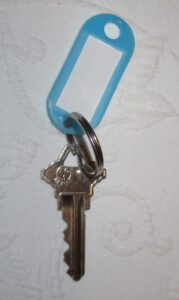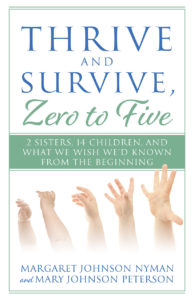It’s not uncommon for me to put things away so well I can’t remember where they are. They aren’t lost, just hiding. The worst of it is that the more important the item, the harder it is to find.
More often than not, when I put these important items “away,” I’ll tell myself, “Take note. You’re putting this next to the computer paper in the hall closet.” Or, “Remember now. It’s in the far back right corner of your dresser drawer.” I take a good look, locking in the details and then walk away – forgetting.
Case in point: Last spring I was given a special key. It opened my church. I needed it for an evening ministry commitment when the church staff would be gone and the church locked. With my own key, I didn’t have to call for assistance but could open the door for our gathering, then lock it as we left.
 The key found a safe spot on my car key ring, and it went along with me wherever I went. But then the time came to return the key. I removed it from the key ring and put it in a “safe place” to await my next trip to the church.
The key found a safe spot on my car key ring, and it went along with me wherever I went. But then the time came to return the key. I removed it from the key ring and put it in a “safe place” to await my next trip to the church.
A few days later, when I looked for it, it was nowhere. I squeezed my eyes tight, trying to picture myself hiding it, coaxing my brain to think as I might have thought then. And then I started hunting. I moved every piece of furniture, swept thoroughly, emptied drawers and closet shelves. I prayed. I pleaded with God. I begged, crying out to him for help. As I talked to him, I knew he was looking right at that elusive key. Why wouldn’t he tell me where it was?
Days went by. Then weeks. I kept looking… to no avail.
When nine of my grandchildren came for a visit (the reason I had put the key in a safe place), I taped a five dollar bill to the computer screen and drew a picture of the missing key and it’s blue key fob. “Whoever finds it gets the money.” And oh how they searched! They were out under the bushes, and checking garbage bags, and searching through the car. But when those two weeks ended and they’d all gone home, the key was still at large.
Though I didn’t stop looking, I began writing a speech in my mind, a tail-between-the-legs apology to the pastor for having lost the church key.
But then…
“Because he bends down to listen, I will pray as long as I have breath! (Psalm 116:2 NLT)

